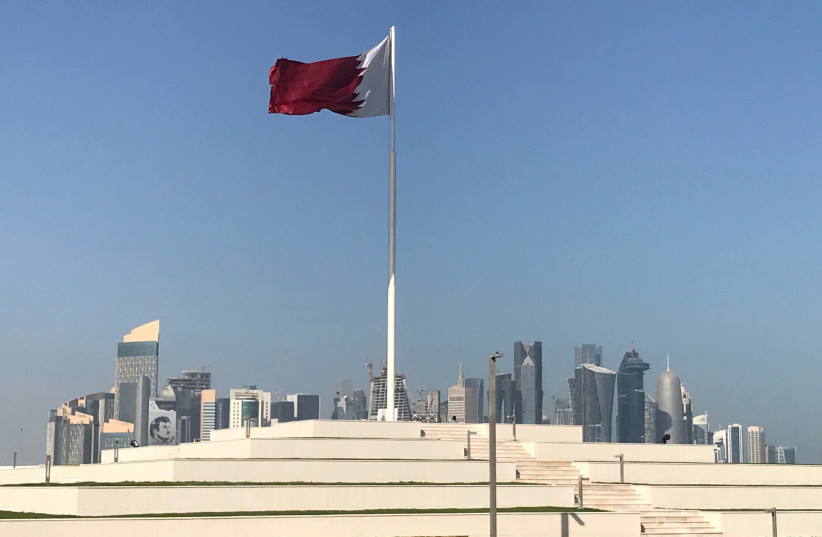Dealing with climate change requires us to rethink the way we live our lives and interact with the environment. The current climate crisis has brought forth new opportunities for countries to create innovative solutions and form strategic alliances. The United Nations predicts that climate change will result in mass migrations, natural disasters and changes in the agricultural landscape. As citizens become more aware of the need for green energy, governments face increasing political pressure to act.
Desert countries, such as Israel, Jordan, Iraq and Qatar, have traditionally been unable to grow crops due to their lack of water and arid conditions. However, new technologies and innovations have turned these areas into assets for cheap and efficient solar energy.
Israel has begun to deploy solar panels in its desert and it is possible to export electricity to neighboring countries, such as Jordan and Egypt. Water desalination facilities are also becoming increasingly important, as natural water sources become endangered. Countries that can provide water have the potential to become regional powerhouses.
In the past, empires were measured by their control of natural resources, such as oil, gas and minerals. However, the current climate crisis presents an opportunity for countries that invest in new technologies and green energy to gain strength. Countries that promote research, development centers and offer tax benefits to large companies with relaxed regulations will have a competitive advantage over those that are slow to adapt.
The recent partnership between the Qatar Investment Fund and the motor giant Rolls-Royce to establish research centers in the UK and Qatar is an example of a green alliance that drives progress in the field of sustainable energy. This partnership is expected to generate at least 10,000 climate-tech jobs by 2040 and intends to create up to five unicorns by 2030 and 20 by 2040.

These numbers are impressive and signify the potential impact that such partnerships can have on the green economy. The exchange of knowledge and expertise between the UK and Qatar will enable the development of new technologies and solutions that will benefit both countries and the world at large.
Israel has also recognized the importance of green alliances and intends to promote similar partnerships with its skilled workforce. As a former chairman of the coalition in Israel, I have been exposed to the importance of green diplomacy. Israel has formed significant connections with other countries around innovation, water, green energy and oil alternatives. As a result, powerful countries seek our expertise and partnership.
Can green diplomacy bring peace to the Middle East?
GREEN DIPLOMACY has the potential to be the bridge to peace with Arab countries, as we all work together to combat the climate crisis. Countries such as Jordan, Chad, Morocco and Israel share a common goal of dealing with climate change. Through innovative solutions and green alliances, we can build a more promising future for all.
One real-life example of a green alliance that has yielded positive results is the partnership between Morocco and Germany. Morocco is a country that heavily relies on fossil fuels but it has also recognized the potential of green energy. In 2009, the country launched the Moroccan Solar Plan, which aimed to generate 42% of its electricity from renewable sources by 2020.
Germany, a leader in renewable energy, has been a key partner in this initiative. German companies have invested in solar power plants in Morocco, which have created jobs and boosted the economy. This partnership has also strengthened diplomatic ties between the two countries.
In addition to green alliances, investing in research and development centers and offering tax benefits to large companies can also have a significant impact on the green economy. The United States, for example, has invested heavily in clean energy research and development.
This has led to the development of new technologies such as electric vehicles and energy storage systems. These technologies have created new jobs and boosted the economy while also reducing carbon emissions.
In conclusion, green alliances have the potential to drive progress in the field of sustainable energy while also fostering diplomatic ties between countries. Partnerships, such as the one between Rolls-Royce and the Qatar Foundation, can create jobs, foster innovation and lead to the development of new technologies that can benefit the world at large. It is important for countries to recognize the potential of green alliances and invest in research and development centers to stay competitive in the green economy.
As we move forward, it is clear that the climate crisis is a global challenge that requires a global solution. Green alliances, innovative solutions and investment in research and development centers will be critical in addressing this challenge. With cooperation and collaboration between countries, we can create a more sustainable future for all.
The writer is a member of the Knesset, the chairman of the Yesh Atid party faction and a coordinator of the opposition.
